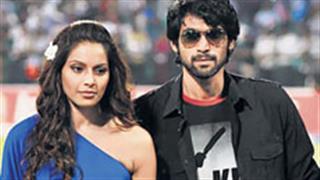Actress Revathy, who has wielded the megaphone for films like "Mitr: My Friend" and "Phir Milenge", feels it's difficult to deceive
the audience with poor content even though their attention span has decreased over the years.
"Audience's attention span is very less these days; so you need to give them a lot in a short time. You need to do a lot, work a
lot," Revathy, who was here to attend the National Awards ceremony, told in an interview.
"People today are well aware because they watch a lot of world cinema. It is interesting that now you cannot cheat the audience,
you need to work in detail. That is one part of it, especially the urban audience, but for the other audience you need to tell a good
story that would touch their hearts," she added.
The actress, a well-known name in the southern film industry, made her debut with Tamil movie "Mann Vasanai" (1983) and went
on to become a name to reckon with in her profession.
Eight years later she made her Bollywood debut opposite Salman Khan in "Love". Other Hindi films that she has been part of are
"Ab Tak Chhappan", "Darna Mana Hai" and "Dil Jo Bhi Kahe".
In 2002, the actress donned the director's hat with "Mitr: My Friend" and her second directorial venture was 2004 movie "Phir
Milenge", which dealt with the issue of HIV. Revathy feels there has always to be a purpose for a film.
"Even as an actor I was very choosy about the films. There has to be a purpose to the film," said the 45-year-old, who has won a
National Award for the short film "Red Building Where The Sun Sets", which shows how fights between parents affect children.
"So I think, when I became a director, the idea was just the combinations of certain causes that I work with and films that I want to
make," she added.
Revathy calls her transition from an actress to a director "very natural".
"As an actor you just do one part of it in the film. But as a filmmaker, starting from the idea to making a story, working on the
entire thing and making it as a feature film was interesting. I tried it with short films in the beginning; after that I thought this is
what I want to do," said the actress.
After being in the Indian film industry for almost three decades, the actress-filmmaker feels the industry has evolved with society.
"The Indian film industry has evolved exactly like the society around. Just like we have changed from writing diaries to short notes
in computers, the same way the industry has evolved in storymaking, storytelling and the technicalities. It caters to people with
different perspectives," said the three-time National Award winner.
"I think Indian cinema is fantastic, especially the regional cinema, while in Hindi cinema you have few glimpses of very good films,"
she added.
You cannot cheat today's audiences: Revathy
Friday, May 04, 2012 12:52 IST



















